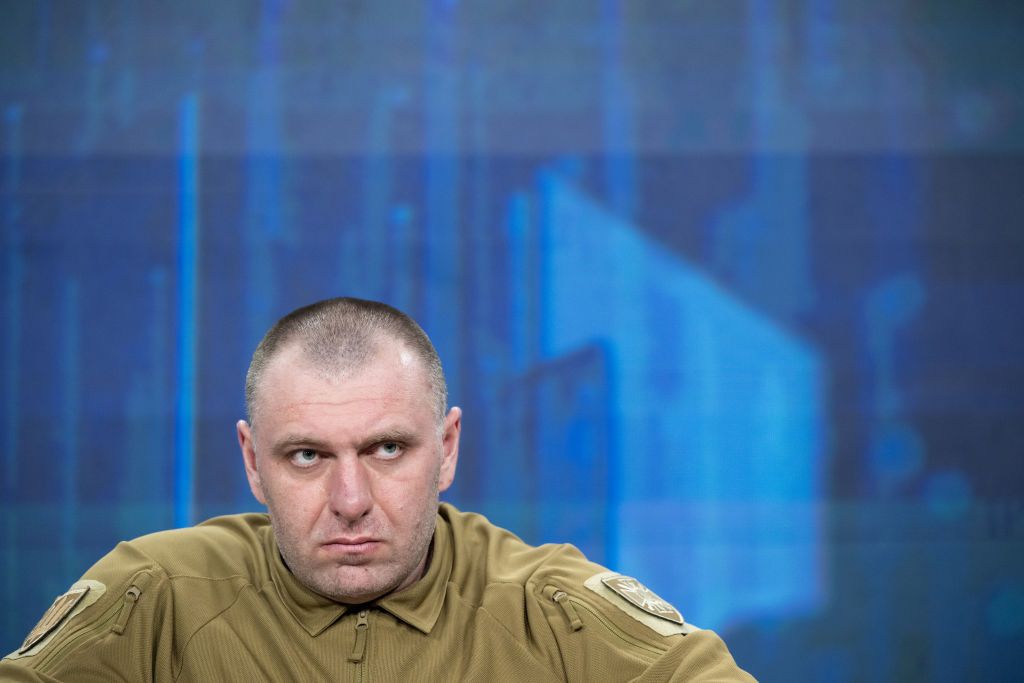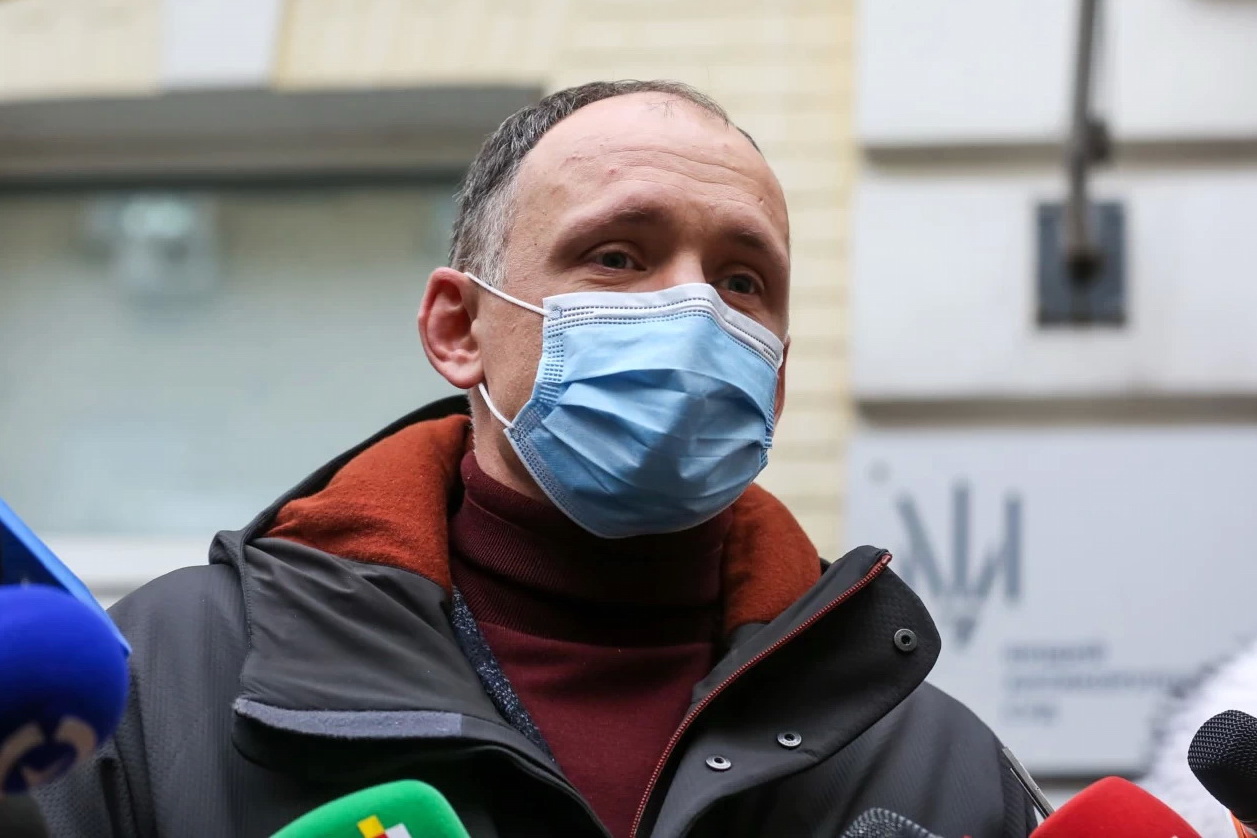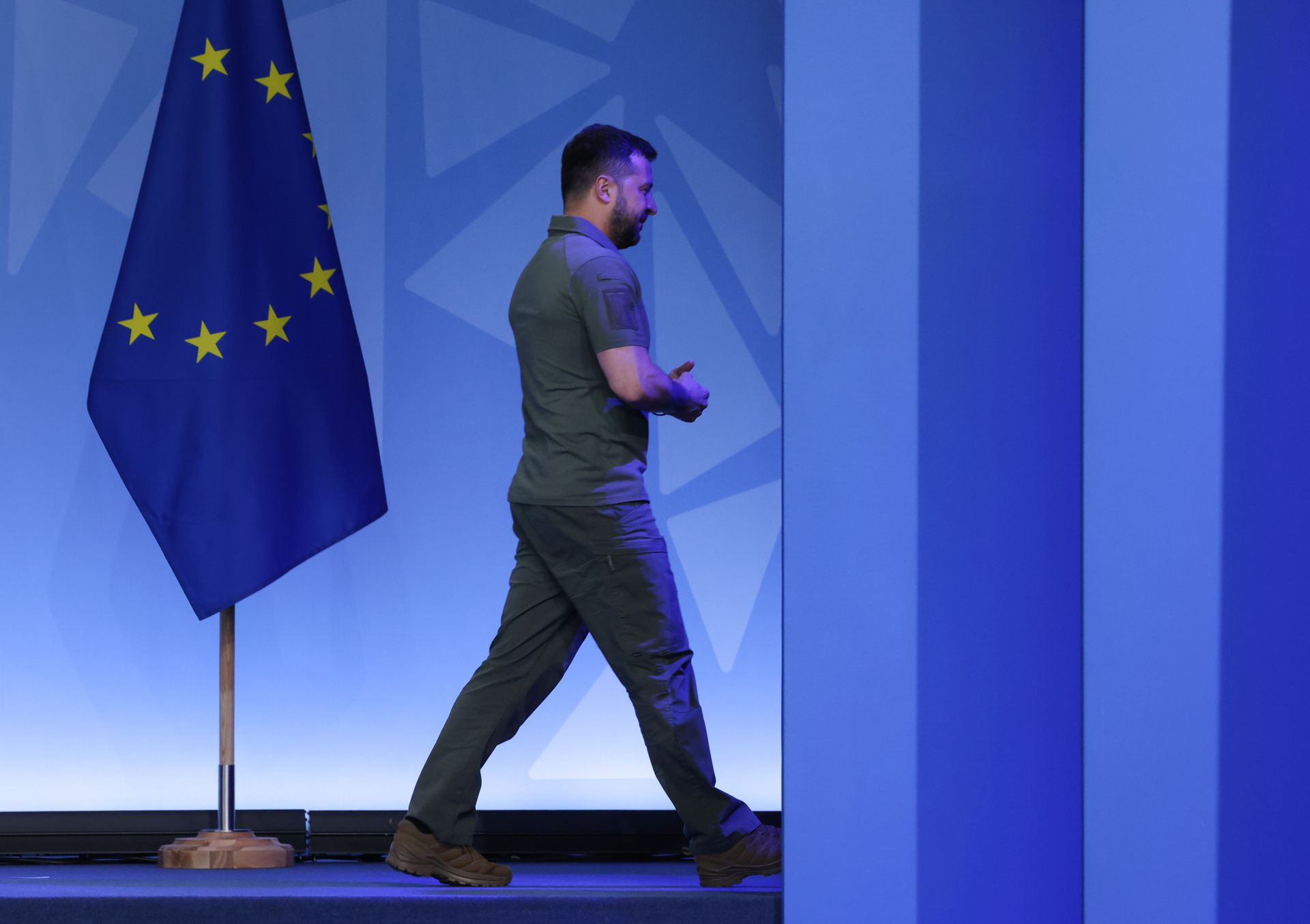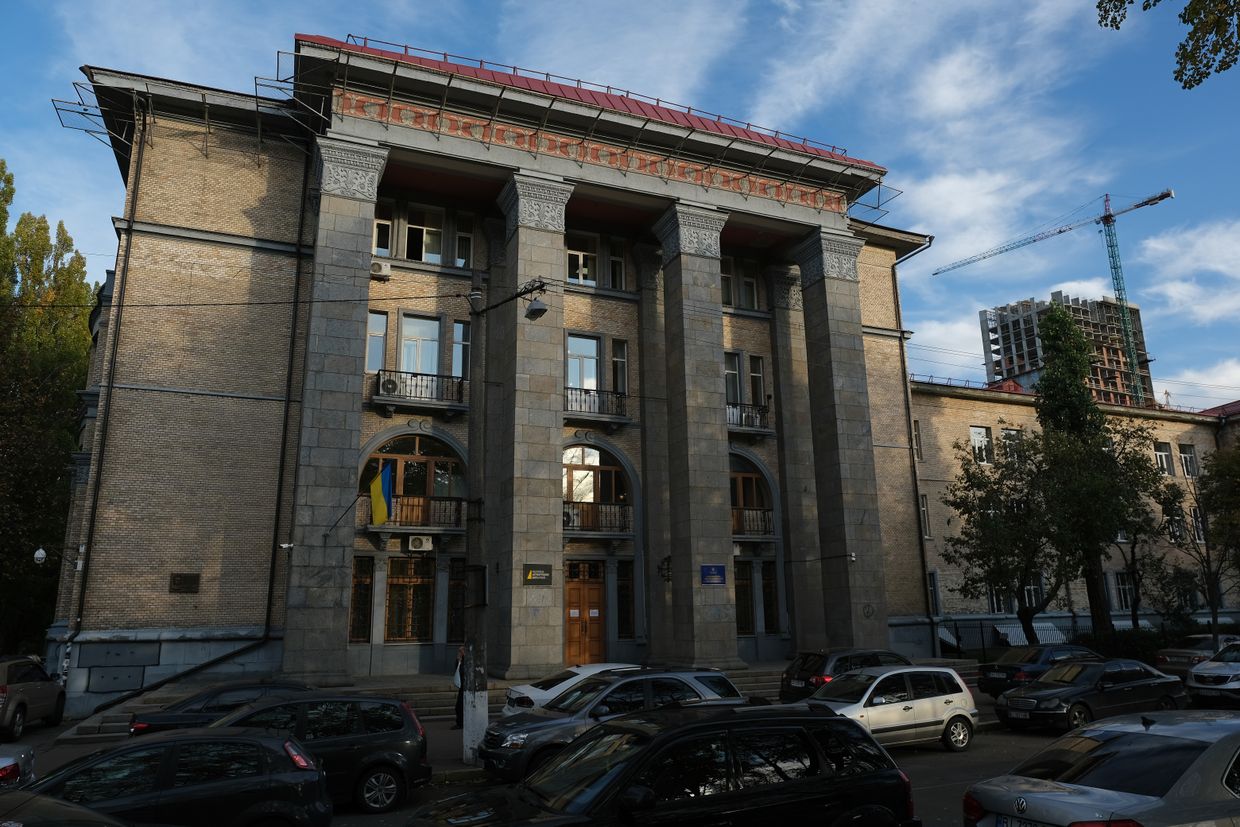'Someone must be held accountable' — Chief anti-corruption prosecutor sounds alarm on justice delayed

Oleksandr Klymenko, head of Ukraine's Specialized Anti-Corruption Prosecutor's Office, following an interview in his office in Kyiv, Ukraine, on July 29, 2025. (Olga Ivashchenko/Bloomberg via Getty Images)
Despite overwhelming political pressure and legal hurdles, Ukraine's anti-corruption agencies have managed to bring charges against a number of top officials.
High-profile cases, however, have been stalled in courts for years.
Oleksandr Klymenko, Ukraine's chief anti-corruption prosecutor, argued in an interview with the Kyiv Independent that the problem must be solved urgently. Many of the major corruption cases will soon be closed unless measures are taken, he said.
"In 2026, 2027, and 2028, you'll see a huge number of cases being closed simply due to the statute of limitations," he told the Kyiv Independent. "And someone must be held accountable for this. Why aren't these cases being heard?"
The problems faced by Klymenko's Special Anti-Corruption Prosecutor's Office (SAPO) are manifold: a lack of independent wiretapping and forensic assessment, leaks, and legal limits.
To top it all off, the authorities tried in July to eliminate the independence of anti-corruption agencies before reversing the changes under public and Western pressure.
“I think there will be (another) attempt to vote on the same legislative changes, but not as a single law — instead, they will try to introduce amendments into other bills that achieve the same thing: attempts to somehow curtail the powers of NABU and SAPO,” Klymenko said.
Old corruption cases
The SAPO, which prosecutes top corruption cases, was created in 2015 as part of Western-backed rule of law reforms. The SAPO oversees the National Anti-Corruption Bureau (NABU), which was created the same year to investigate top corruption.
The purpose of the reforms was to create independent anti-corruption agencies separate from old law enforcement agencies, which were politically subservient and mired in corruption.
Klymenko, 39, became an investigator at the Anti-Corruption Bureau in 2016 and took the helm at the SAPO in 2022.
One of the challenges that he faces now is a lack of court verdicts in high-profile corruption cases.
Courts are still considering major corruption cases that began many years ago — such as those against Roman Nasirov, former head of the State Fiscal Service; lawmaker Mykola Martynenko; Oleh Hladkovsky, ex-secretary of the National Security and Defense Council; former Odesa Mayor Hennadiy Trukhanov, and tainted judge Pavlo Vovk.
In the Nasirov case, it took a court one and a half years just to read the indictment, and one preparatory court hearing in the Trukhanov case took more than three years.
Before the creation of the High Anti-Corruption Court in 2019, these cases had been heard by district courts, which faced growing accusations of corruption and inefficiency. The High Anti-Corruption Court's creation was intended to put an end to this deadlock and make trials faster and more effective.
According to Klymenko, the High Anti-Corruption Court has brought only limited progress since its inception, primarily in addressing petty corruption.
High-profile proceedings remain stalled, according to him.
Many old high-profile corruption cases may soon be closed because the statute of limitations will expire, Klymenko added.
"If you're hearing a case for only two hours a month, it's hard to expect that you'll ever actually finish the criminal proceedings," he added. "The responsibility for complying with time limits during court hearings lies with the court, and the court must be held accountable."
To solve the problem, Klymenko proposed introducing more severe disciplinary penalties for judges when cases are closed due to the statute of limitations.
Another solution is "changing the approach to calculating the statute of limitations" to make sure that "once the indictment is sent to the court, the statute of limitations stops," Klymenko added.
Conflict with President's Office
Over the past few months, a more urgent issue has been on Klymenko's mind — the ongoing conflict between the President's Office on the one hand and the two anti-corruption agencies — SAPO and NABU — on the other.
In July, the Security Service of Ukraine (SBU), which is seen as close to the president, searched the NABU premises and conducted checks of NABU and SAPO employees' access to state secrets.
The SBU searches were carried out without a warrant. The Security Service appealed to a law that allows searches without a court's permission if they are "urgent."
Klymenko cast doubt on the legality of these searches, which dealt with a variety of unrelated cases — from treason to traffic accidents.
"What element of urgency is there in investigating a traffic accident that happened four years ago?" he said.
The SBU's press service argued in response to the Kyiv Independent that the searches were legal.
Since then, three NABU detectives have been arrested and charged with treason and aiding Russia. Klymenko said that the evidence presented by the SBU against the NABU detectives does not convince him.
A day after the July searches, President Volodymyr Zelensky signed a law that subordinated the NABU to the prosecutor general, an official appointed by the president. The bureau's independence was later restored following street protests and pressure from Brussels but the clash continued.
"Any attempts to influence the work of anti-corruption bodies are illegal, because they must operate independently, without any external interference," Klymenko argued.
The crackdown on the SAPO and NABU was preceded by several corruption cases against presidential allies.
Deputy Prime Minister Oleksii Chernyshov was charged with bribery and abuse of power in June. NABU also looked into Zelensky's former Deputy Chief of Staff, Rostyslav Shurma, and allegedly his former business partner, Timur Mindich.
Klymenko said that the Chernyshov case was one of those that contributed to the crackdown.
"The reason for the attack on the NABU in July was the cumulative effect of our work and our results," he said. "What happened there was an attempt to deprive us of our independence. It wasn't about some single specific case."
Ukrainian media outlet Babel reported on Oct. 6, citing its sources, that Klymenko was being investigated by the SBU in relation to cases connected to the detained Ukrainian lawmaker Fedir Khrystenko. If Klymenko is charged, it could be grounds for his dismissal, according to Babel.
The SBU later denied the report. The service claims that Khrystenko, who faces treason charges, has influenced NABU's work but says that no case against Klymenko is in the works.
"I have never communicated with (Khrystenko) — neither directly nor through any intermediaries," Klymenko said.
Going after presidential staffers
The irony, however, is that officials of the President's Office, involved in a political struggle with the NABU and SAPO, are technically outside the anti-corruption agencies' jurisdiction.
Klymenko said that the NABU and SAPO have sent their recommendations to the Ukrainian parliament's law enforcement committee to expand their jurisdiction to include the President's Office, governors, deputy governors, and the head of the State Investigation Bureau and his deputies.
However, the committee rejected the proposals in early 2025, he added.
There are still loopholes that enable the NABU and SAPO to go after presidential staffers if the amount of bribes or losses exceeds certain limits. Two of Zelensky's deputy chiefs of staff, one current and one former, have been formally charged, and at least two are being investigated.

One of the top presidential staffers, Zelensky's Deputy Chief of Staff Oleh Tatarov, was charged in 2020 with giving a bribe to an official before he joined the President's Office.
The Prosecutor General's Office and courts obstructed the case by transferring it from the NABU to the SBU and twice replacing prosecutors in the case. Eventually the case was closed by a court in 2022.
Klymenko was in charge of the Tatarov case when he was a NABU detective.
"In fact, this criminal case was taken away from us illegally and simply closed after some time," he said. "And there's no legal way to revive this case."
Klymenko said that he tried to save the Tatarov case by resorting to a legal loophole — merging it with other investigations, which would prevent it from being transferred to the SBU. He tried to persuade the then-acting Chief Anti-Corruption Prosecutor Maksym Hryshchuk to do so, but he allegedly refused. Hryshchuk, who is currently serving in the army, told the Kyiv Independent that he was not authorized to comment.
Klymenko also said he had initiated a criminal case into illegal interference with the Tatarov case, but it had not made any progress since then.
Wiretapping and forensic assessments
Apart from interference from the Prosecutor General's Office and courts, the NABU and SAPO also face another obstacle. To wiretap the phones of suspects, they have to request permission from the SBU, currently on the other side of an ongoing political power struggle.
Wiretapping through the Security Service makes little sense because information is leaked to suspects, Klymenko said.
"Without using this tool, investigating corruption-related offenses is much more difficult," he added. "That's why, in our most high-profile criminal cases, we really don't use telephone wiretapping."
In 2019, the Ukrainian parliament passed a law to give the NABU the legal authority to independently wiretap suspects.

However, the bureau is still unable to independently wiretap anyone due to bureaucratic hurdles and obstruction from the SBU, Klymenko said.
The SBU's press service told the Kyiv Independent that the NABU is expected to get independent wiretapping powers by the end of 2026. The Security Service added that it is developing technical requirements for the NABU's wiretapping equipment.
Another hurdle is the lack of an independent forensic assessment institution.
Currently, the NABU and SAPO are forced to use forensic assessment institutions controlled by the Justice Ministry and other government bodies.
However, these institutions have leaked information to suspects and cooperated with them, according to the results of searches conducted by the NABU and SAPO, Klymenko said.
To further complicate things, Klymenko is confident that the authorities will once again attempt to limit the powers of the country's anti-corruption institutions.
"No one has abandoned this idea, and it will continue," Klymenko said.















